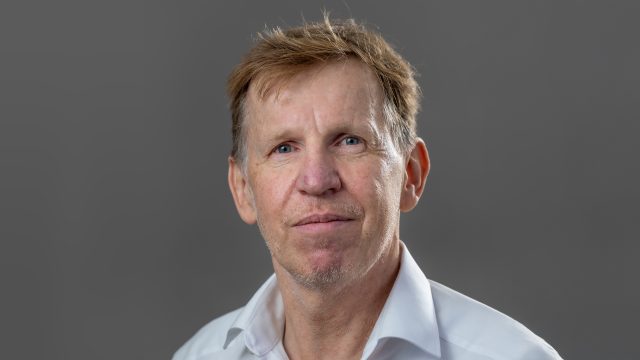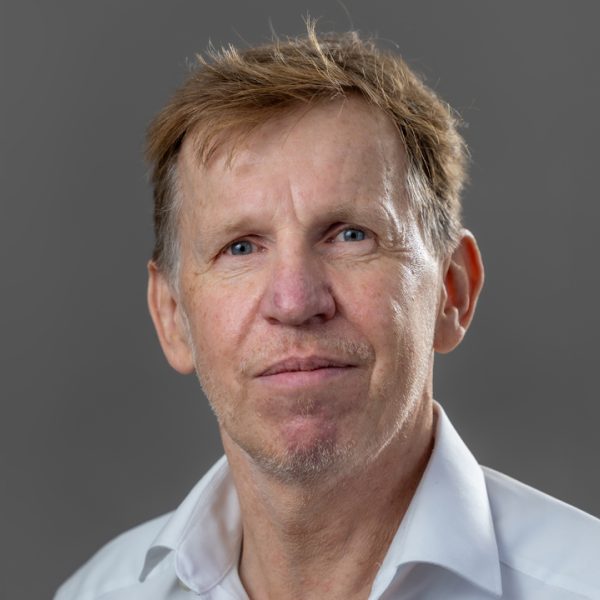
Our Focus
The cancer immunotherapies that have transformed cancer treatment over the past 1-2 decades largely or fully act by allowing cancer cell destruction by an immune cell subset called T cells. Our goal has been to understand what T cells ‘see’ on cancer cells, in other words what makes cancer cells look foreign to our T cell-based immune system. Such knowledge may allow one to better understand why cancer immunotherapies show greater clinical activity in certain patient groups. In addition, such knowledge can inspire the development of novel immunotherapies. As one specific example, based on fundamental principles of T cell activation, we previously proposed the superior immune activating capacity of immunotherapy when given before surgery (i.e., neoadjuvant immunotherapy), and we then provided the data to support this model. Neoadjuvant cancer immunotherapy is now a broadly used approach, with striking clinical data in a number of tumour types
To achieve our experimental goals, we employ an engineering-based approach to measure T cell reactivity in human cancer lesions. Our long-term vision is to use these technologies to also allow the development of predictive algorithms for T cell specificity. In our view, such predictive algorithms have a major diagnostic and therapeutic potential in cancer, but also in other human diseases.
About Ton Schumacher
My Research
Ton Schumacher started his career in 1988 in the lab of Hidde Ploegh at The Netherlands Cancer Institute, as a PhD student working on antigen presentation by MHC molecules. After his PhD (1992), and a brief stint with Ploegh at MIT, he moved to the lab of Peter Kim at The Whitehead Institute (Cambridge, USA), where he developed novel technologies for drug discovery. In 1996, he became PI at The Netherlands Cancer institute, a position that he combines with a professorship at Leiden University since 2005. In his research, Schumacher aims to understand how the T cell-based immune system can recognize and destroy cancer cells. Key highlights in this work have been:
Development of a series of technologies to measure which fragments from (tumor) antigens can be presented by MHC molecules.
Provision of the first in vivo proof of principle for the potential value of T cell receptor gene therapy to induce defined tumor-specific T cell responses.
Development of the concept of cellular barcoding to reveal single immune cell behavior in vivo, and the subsequent use of this technology to reveal fundamental aspects of immune responses.
Development of high-throughput technology to measure T cell responses to patient-specific tumor antigens, and the subsequent demonstration that T cell responses against neo-antigens are common in tumors with high levels of DNA damage, and can be enhanced by immunotherapy. The latter data have contributed to the ongoing development of personalized cancer immunotherapies that aim to selectively boost T cell reactivity against patient-specific neo-antigens.
Demonstration of the superior immune activating capacity of immune checkpoint blockade in cancer patients when given before surgery, providing a rationale for the ongoing broader clinical development of neoadjuvant cancer immunotherapy
In addition to his academic work, Schumacher is venture partner at Third Rock Ventures and co-founder of 6 biotech companies that develop antibody-, T cell-, and vaccine-based cancer immunotherapies.
Awards
2021: Louis-Jeantet Prize for Medicine
2021: Elected Fellow of the AACR Academy
2021: Elected member Royal Netherlands Academy of Arts and Sciences
2021: AACR-CRI Lloyd J. Old Award
2021: Elected member Royal Holland Society of Sciences and Humanities
2020: Simon Stevin Award
2018: Honorary Member EATI
2017: Academia Europaea Member
2016: Peter Speiser Award
2016: van Loghem Award
2016: W.B. Coley Award
2015: Meyenburg Cancer Research Award
2014: San Salvatore Award
2014: Queen Wilhelmina Research Award
2014: Fellow European Academy of Cancer Sciences
2013: Scientific Advisory Council, The Cancer Research Institute
2010: EMBO Member
2010: Amsterdam Inventor Award
2000: Pioneer Award
1994-1996: Howard Hughes Medical Institute Fellow, The Life Sciences Research Foundation
Key Publications
Ariotti, S., Hogenbirk, M. A., Dijkgraaf, F. E., Visser, L. L., Hoekstra, M. E., Song, J. Y., ... & Schumacher, T. N. (2014). Skin-resident memory CD8+ T cells trigger a state of tissue-wide pathogen alert. Science, 346(6205), 101-105.
Gerlach, C., Rohr, J. C., Perié, L., van Rooij, N., van Heijst, J. W., Velds, A., ... & Schumacher T. N. (2013). Heterogeneous differentiation patterns of individual CD8+ T cells. Science, 340(6132), 635-639.
Linnemann, C., Van Buuren, M. M., Bies, L., Verdegaal, E. M., Schotte, R., Calis, J. J., ... & Schumacher T. N. (2015). High-throughput epitope discovery reveals frequent recognition of neo-antigens by CD4+ T cells in human melanoma. Nature medicine, 21(1), 81-85.
Mezzadra, R., Sun, C., Jae, L. T., Gomez-Eerland, R., de Vries, E., Wu, W., ... & Schumacher T. N. (2017). Identification of CMTM6 and CMTM4 as PD-L1 protein regulators. Nature, 549(7670), 106-110.
Strønen, E., Toebes, M., Kelderman, S., van Buuren, M. M., Yang, W., van Rooij, N., ... & Schumacher, T. N. (2016). Targeting of cancer neoantigens with donor-derived T cell receptor repertoires. Science, 352(6291), 1337-1341.
Blank, C. U., Rozeman, E.A., Fanchi, L.F, Sikorska, K., van de Wiel, B., Kvistborg, P., … & Schumacher T. N. (2018). Neoadjuvant versus adjuvant ipilimumab plus nivolumab in macroscopic stage III melanoma. Nature medicine, 24(11), 1655-1661..
Members
| Ton Schumacher Group leader, Divison Immunology | Aurelie Guislain Technician | Benoît Nicolet Post Doc |
| Bjørn Kwee Bioinformatician | Connor Richterich Phd student | Jani Huuhtanen Postdoc |
| Jos Urbanus Technician | Maike Mussmann Technician | Marius Messemaker Phd student |
| Yael Winkler PhD Student |
